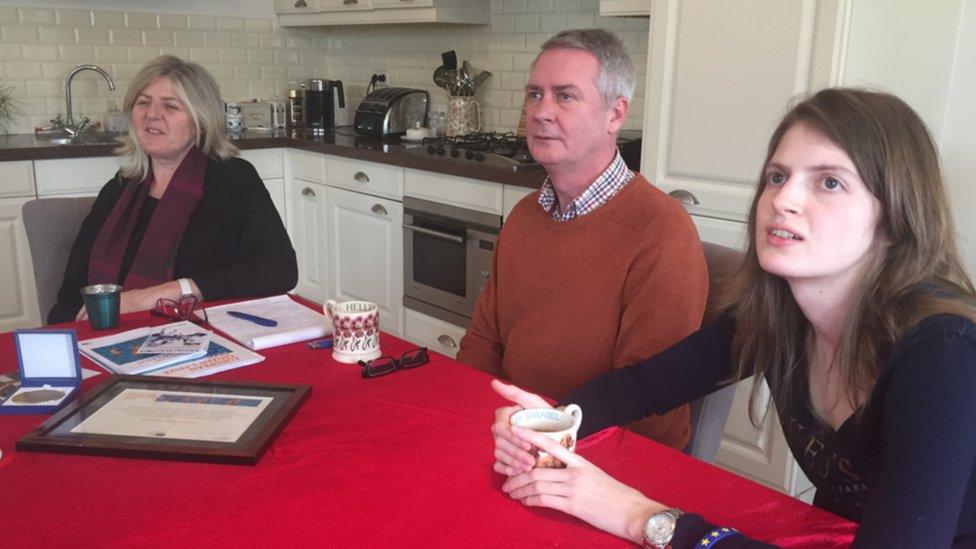Brexit: What could leaving EU mean for Fishguard's port?
- Published
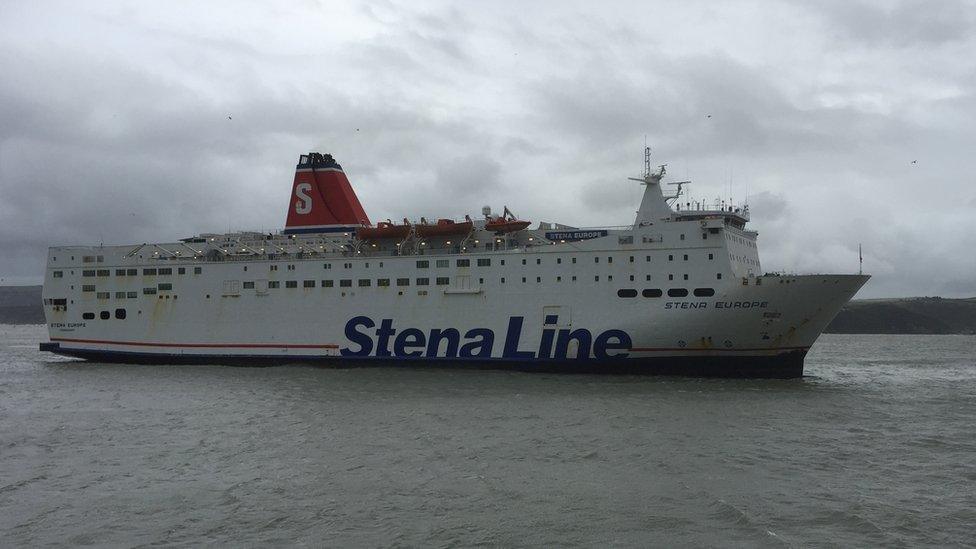
Fishguard is home to one of Wales' three ports with ferry links to Ireland
Of all the stories that have come out of Brexit and Wales, the impact or otherwise on the country's port links with Ireland has been one of the biggest.
Wales has three ports that link Great Britain to Ireland, with warnings of long queues if, as a result of whatever Brexit negotiations produce, customs and border checks are needed.
One port, Holyhead, has had much written about it - with concerns new checks could result in delays and disrupt its business model.
But the smaller port of Fishguard in Pembrokeshire, with its own roll-on, roll-off service, has also been a focus of some concerns.
An assembly committee report last year, external found 100,000 lorries were carried to Ireland via ports in Pembrokeshire in 2015 - a third of those through Fishguard.
The UK government said it did not want a so-called "hard border" with Ireland and it is unclear what, if any, impact the final Brexit settlement would have on Wales' ports.
Jeremy Martineau, secretary of the Fishguard and Goodwick Chamber of Trade, said the organisation, which has 140 members, does not have a view on Brexit.
But asked what he thought personally about the impact of leaving the EU on the town, the Remain voter said: "It depends on what happens with the Ireland/Northern Ireland border."
He feared border checks would deter commercial traffic from using the link - something he said was more significant than passenger traffic - and was concerned about direct routes from Ireland to the continent being developed.
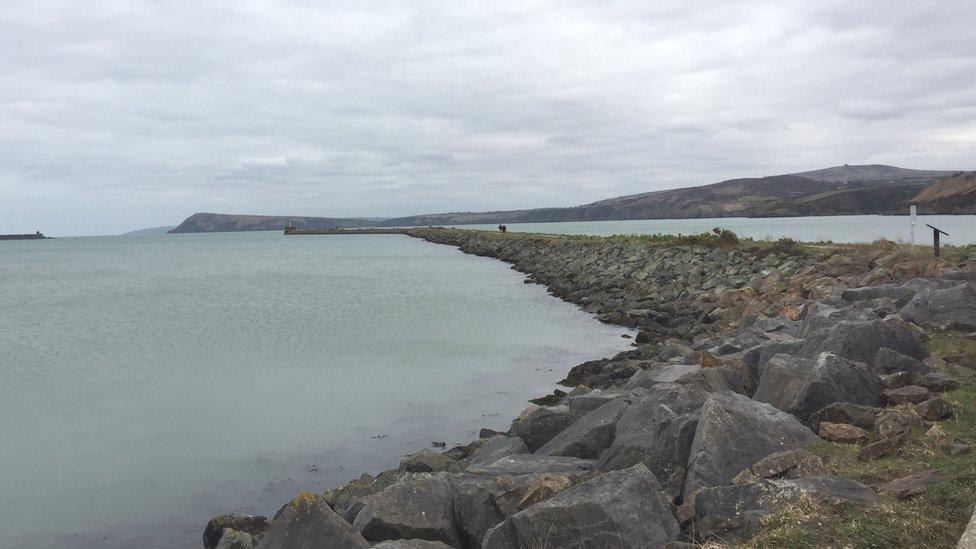
Agriculture and tourism are big parts of the economy in Fishguard
Mr Martineau feared less freight "could close the port", as there may not be enough business for docks at both Pembroke Dock and Fishguard to operate.
"I think it's serious. It may be more physiologically damaging than economically, although we'd lose 70-80 direct jobs from the port itself," he said.
"It's long-been a frustration that ferry passengers don't necessary come and spend any money in Fishguard and Goodwick. They put their foot down on the throttle and disappear.
"On the other hand, we've got the cruise business - that is very important for us. If we would lose that we would lose several hundred thousand pounds a year to the local economy."
But he said, for some people in the town, whether the port was there or not "would not make any difference".

Anne Andrews said the EU has set too many rules and regulations
But even in a town such as Fishguard, is Brexit a talking point?
Anne Andrews, who runs a stall at Fishguard Market, voted to leave in the 2016 referendum, as did a majority in Pembrokeshire.
"We joined the common market and it has changed a lot since it has become much bigger," she said, adding the EU "sets too many rules and regulations".
She appeared to be unconvinced the port was under threat: "Stena, who run the port, don't think its likely to close."
Is Brexit something you hear people talk about?
"A little bit," she said. "They get worried it will mean an increase in costs for food and other things. I think we're being frightened. There's a lot of hype."
Gwyneth Evans, a retired farmer from Fishguard who raises money for charity in the market, said she was "originally all for" the common market, but voted leave: "I thought we would be much better off out."
She thought the prospect of customs checks at the port - should they become a reality - was something that might bother people who were involved with the port, but others less so.

Dave Golding said people had decided Brexit was a "fait accompli"
Dave Golding, who runs a cafe at Fishguard Market, but is originally from the West Midlands of England, voted Remain in the referendum and worries Stena could move out of the town.
But does he think Brexit keeps people up at night in Fishguard? "No. I don't think they care very much.
"I think people decided it is a fait accompli. They think we've voted, its done, we're leaving - the politicians will sort out the best we can and everyone will be unhappy with it."
Duncan Wilson is director of Edukey, an education software firm in Fishguard that employs 45 people.
"The port has zero impact on our business, but Brexit does. We work with schools in Europe and any barrier to trade is not good for us", he said, adding that a contract with Malta to supply all schools in the country was nearly lost because of the Brexit vote.
A spokesman for Stena Line said: "Presently it is unclear what the precise implications on UK shipping will be as a result of the UK's exit from the EU, equally, it is still unknown at what pace companies will need to adopt to the new economic environment.
"Stena Line is currently working with the UK Chamber of Shipping to consider the implications for all of Stena's UK interests.
"The UK Chamber of Shipping is an important platform for Stena Line to work with the wider shipping community, including its social partners and stakeholders, to better understand the practical implications of a UK exit from the EU."
- Published28 March 2018
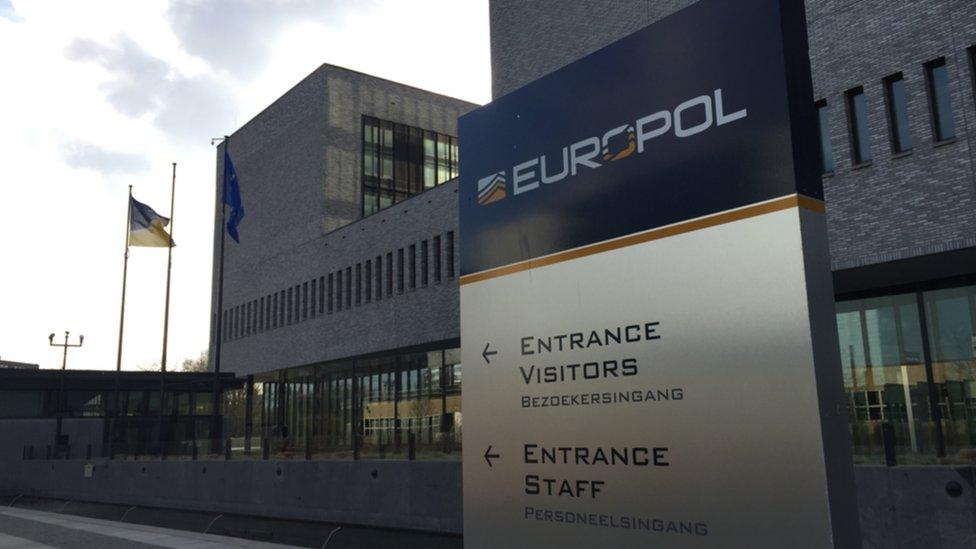
- Published17 September 2018
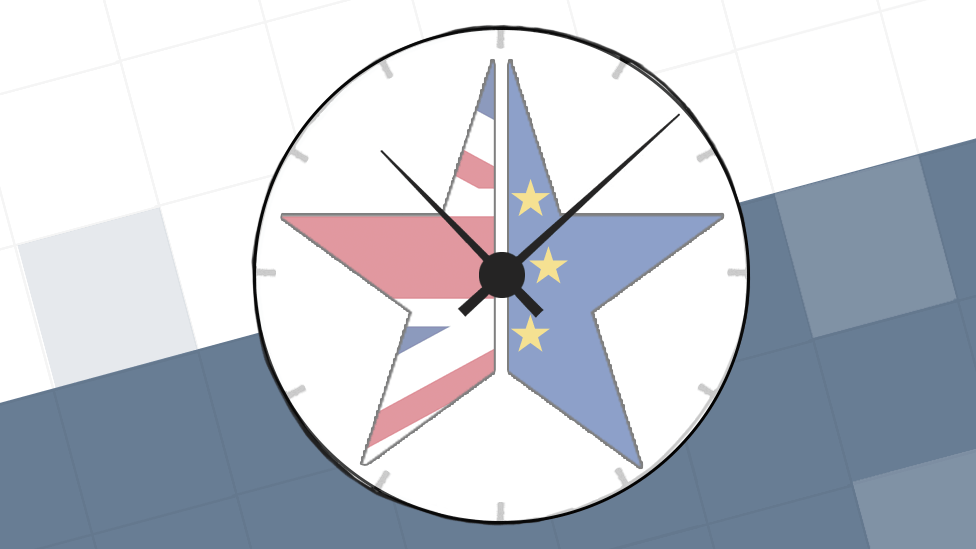
- Published26 March 2018
